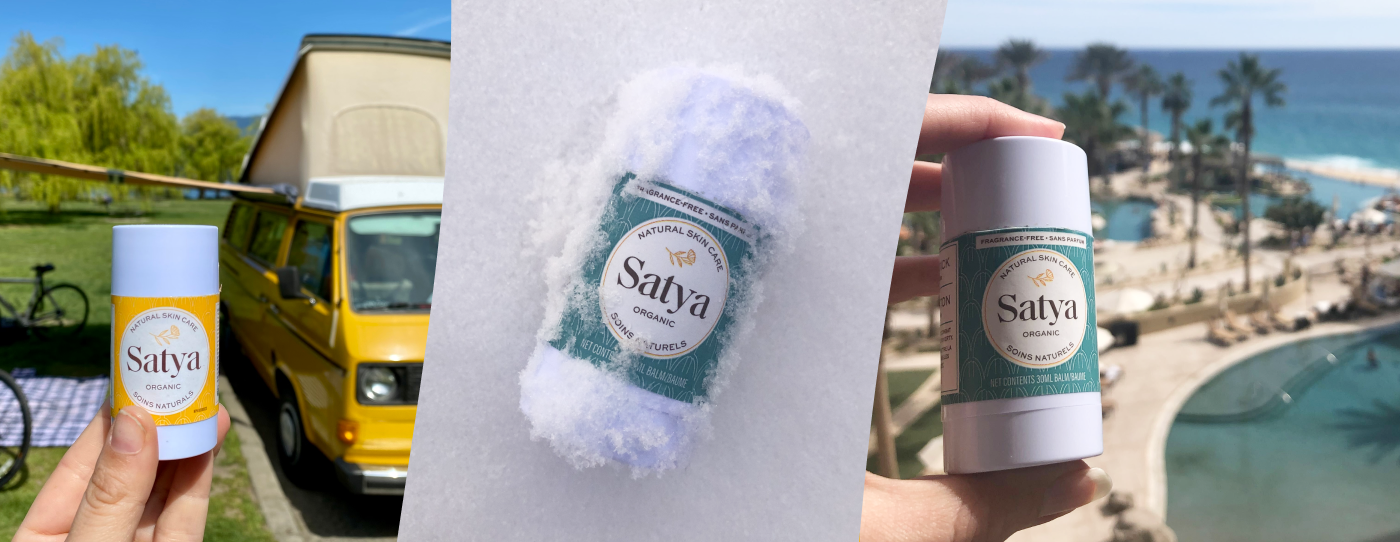As snow begins to melt and birdsong fills the air, most of us are uber-excited to greet spring! So long frigid temperatures and hello sunshine. But did you know that the change of seasons can actually trigger symptoms of eczema?
Eczema is the umbrella term used to describe a group of skin conditions that produce red, itchy rashes. If you struggle with eczema in any form, then you understand the challenge of preventing flare-ups and trying to calm inflamed skin. For some people, symptoms may worsen during winter, while others are more triggered in springtime or summer. Help regulate your condition with these instructive facts.
3 things to know about eczema in spring:
1. Sweat is Your Mortal Enemy
Everybody sweats. This is especially true during the warmer months of the year. Unfortunately, those with eczema produce sweat with fewer natural moisturizing properties and more chemicals than most people. This can potentially result in dryer skin, fluid loss, increased itching, and greater risk of infection, along with related conditions such as heat rash. There is also a possible connection between the most common form of eczema, atopic dermatitis (AD) and allergies. How can you manage this trigger and still enjoy exercise and the great outdoors?
Some helpful tips from Medical News Today:
- Modify your exercise routine. Take extra precautions, including exercising indoors in a well-ventilated environment or exercising outdoors in the early morning or evening, when it’s cooler.
- Stay hydrated. Water, moisturizer, and sunscreen go a long way toward reducing the likelihood of flare-ups. You might even want to consider a handheld fan to help cool your body.
- Eat with intention. Take any necessary medications and remember to eat a healthy diet by reducing saturated fats and consuming anti-inflammatory foods like berries, green tea, and dark chocolate.
2. Mindfulness Matters
In addition to managing physical threats, positive mental health is vitally important to our overall well-being. With a new season, comes new routines and expectations – some welcome and some beyond our control. For better or for worse, change can place stress on the body and aggravate existing conditions. Eczema is no exception. The benefits of developing a mindfulness practice to help manage stress cannot be overstated. So, how can you incorporate this practice into your daily life?
5 mindful practices from the National Eczema Organization:
- Breathe. Whenever you’re feeling overwhelmed or anxious, a deep breathing strategy can relax your nervous system and provide a sense of calm.
- Move. Even fifteen minutes of movement a day can make a tangible difference. Remember to take body breaks when sitting for long periods of time.
- Create rituals. Nurture your soul every day. Sustainable rituals can be as simple as reading a chapter in your favourite book or cuddling up with a cherished pet. Self-care is a very individual pursuit.
- Practice a daily mantra. Use a repeated word or phrase to set a motivational intention, for example, “I am brave and strong.” Research supports the effectiveness of personal mantras in shifting mindset and perspective.
- Meditate. There are many proven benefits to meditation, including pain relief and improved focus. Yoga can often complement this practice and offer similar results. Find what works for you.
3. Every Season Has a Silver Lining
Warmer weather may increase perspiration, but it also equals sunshine! Natural sunlight can help to improve eczema. While extreme temperatures of heat or cold only exacerbate this condition, moderate exposure to the sun has proven to be helpful in managing eczema. There is always a silver lining to every season. But how can you celebrate the seasons and still minimize risk?
Some ways to lessen the impact of eczema as the weather changes:
- Pinpoint environmental triggers. Try to isolate symptoms and discover what’s causing the reaction. For example, if your condition flares up after sitting on the grass, make sure to take a shower immediately afterwards and apply generous amounts of moisturizing lotion to the skin.
- Consult your doctor. If your condition suddenly worsens with the change of seasons, you may have developed a new allergy. Your primary care physician can arrange a patch allergy test to find out.
- Moisturize, moisturize, moisturize! It is important to always stay on top of your condition. The more you can maintain, the better. Remember that it’s easier to manage everyday eczema than to treat a flare-up.
Despite the complications of living with eczema, there is hope for renewal. With a little ingenuity and forethought, this might just be your best spring yet!



